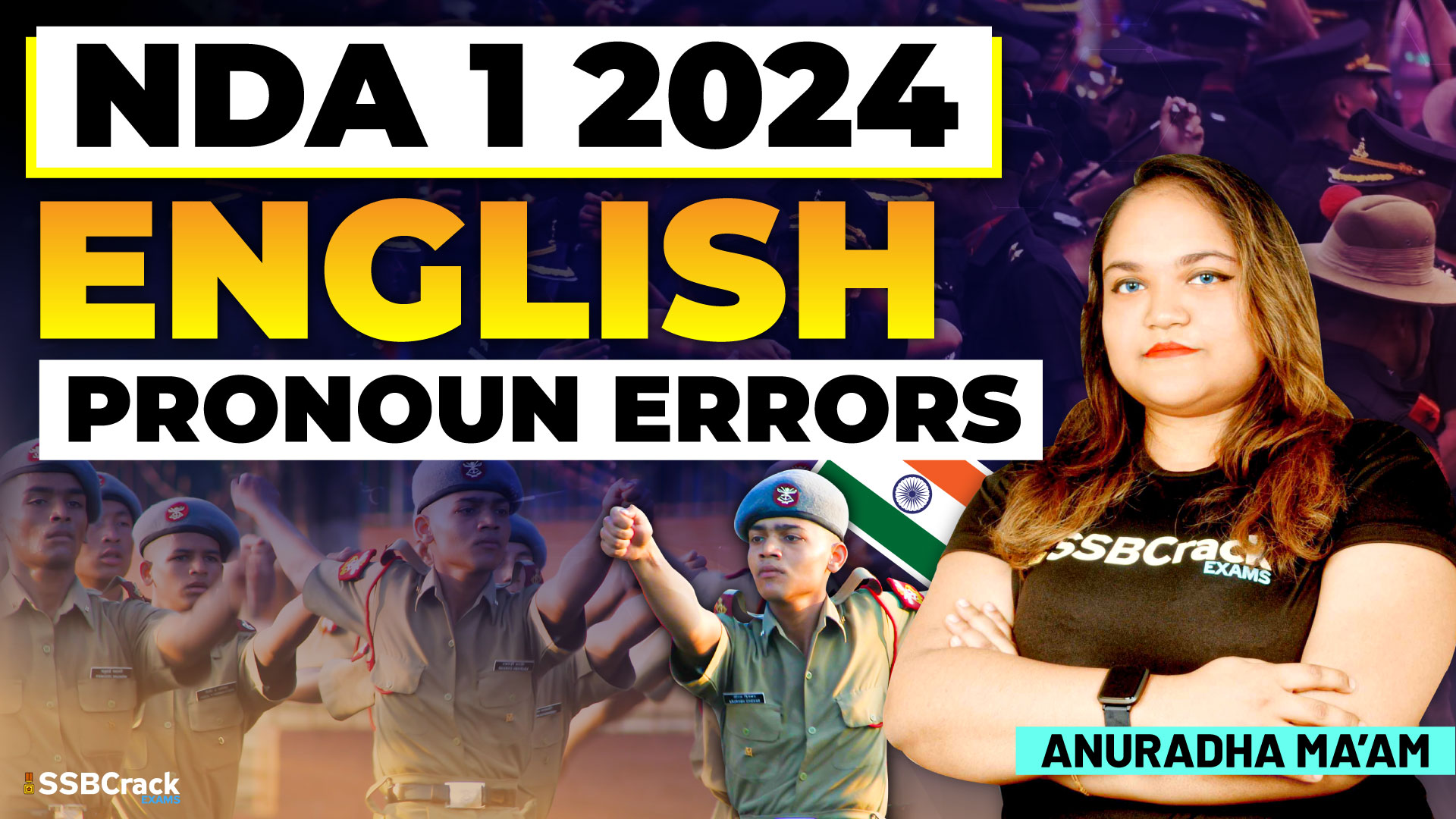The National Defence Academy (NDA) examination is a rigorous test that assesses aspiring individuals with the aim of shaping them into competent leaders for the armed forces. Within the English section of the examination, a solid understanding of pronouns is not just beneficial but is foundational for effective communication. This article aims to emphasize the significance of pronouns and shed light on various pronoun errors that NDA aspirants should be wary of while preparing for the exam.
- The Vital Role of Pronouns: Pronouns serve as linguistic tools that facilitate clear and concise communication. In the context of military service, where precision and clarity are paramount, mastering pronouns is crucial. Pronouns help avoid redundancy, enhance readability, and contribute to the disciplined communication standards expected of military officers.
- Common Pronoun Errors to Beware Of:a. Ambiguous Pronoun Reference: Aspirants should be cautious about ambiguous pronoun references, where it is unclear to whom the pronoun refers. For example, “He handed the report to the officer, and he reviewed it carefully” could lead to confusion about who “he” refers to.b. Lack of Pronoun-Antecedent Agreement: Pronouns must agree with their antecedents in gender and number. Errors like “Each soldier should carry his or her backpack” help maintain agreement, avoiding gender bias and ensuring accuracy.c. Misuse of Intensive and Reflexive Pronouns: Intensive pronouns (myself, yourself, himself, herself, itself, ourselves, yourselves, themselves) and reflexive pronouns (myself, yourself, himself, herself, itself, ourselves, yourselves, themselves) are commonly confused. Aspirants should use them appropriately, such as “He did the task himself” (intensive) vs. “He washed himself” (reflexive).d. Incorrect Pronoun Case: Understanding the correct case of pronouns (subjective, objective, possessive) is crucial. For example, “Between you and I” should be corrected to “Between you and me.”e. Pronoun Use in Comparisons: Aspirants should be careful with pronoun usage in comparisons. For instance, “She is smarter than her” should be corrected to “She is smarter than she.”
- Strategies to Avoid Pronoun Errors:a. Comprehensive Practice: Engaging in regular practice exercises focused on pronouns helps reinforce understanding and identifies potential errors.b. Clear Antecedent Identification: Ensuring clarity in identifying pronoun antecedents avoids ambiguity and contributes to precise communication.c. Mastery of Pronoun Agreement Rules: A solid grasp of pronoun-antecedent agreement rules, especially in terms of gender and number, is essential for error-free usage.d. Attention to Pronoun Case: Paying close attention to the correct case of pronouns in various contexts minimizes errors related to subjective, objective, and possessive forms.e. Thorough Review and Revision: Regular review and revision of pronoun-related concepts contribute to the retention of knowledge and the ability to recognize errors more readily.
Conclusion:
In conclusion, a thorough understanding of pronouns is indispensable for NDA aspirants seeking success in the English section of the examination. By being mindful of common pronoun errors and implementing strategic study practices, aspirants can fortify their linguistic skills and align themselves with the disciplined communication standards expected in military service. A profound grasp of pronouns is not merely a test-taking necessity but a foundational skill that contributes to effective communication in the dynamic and challenging environments inherent to a career in the armed forces.




















